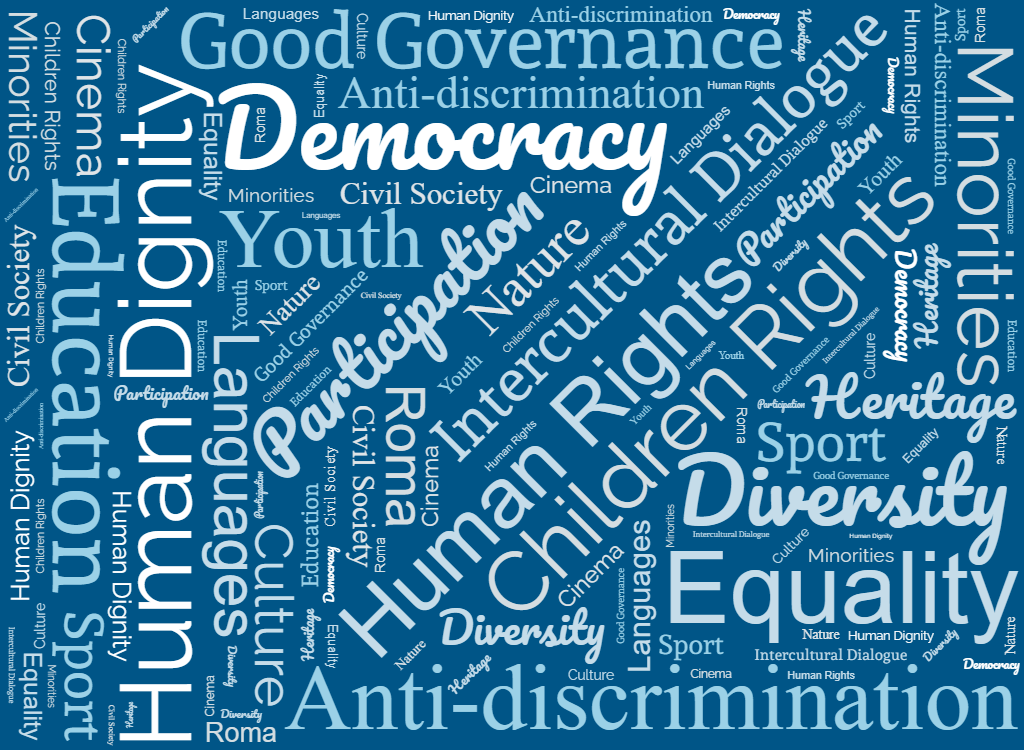Partial Agreements and Directorate General of Democracy and Human Dignity
Partial Agreements allow member States of the Council of Europe to abstain from participating in a certain activity advocated by other member States. From a statutory point of view, a partial agreement remains an activity of the Organisation in the same way as other programme activities, except that a partial agreement has its own budget and working methods which are determined solely by the members of the partial agreement.
Enlarged Partial Agreement on Sport (EPAS)
The EPAS aims to promote sport and emphasise its positive values, to establish international standards and develop a framework for a pan-European platform of intergovernmental sports co-operation while at the same time helping the public authorities of member States of the EPAS, sports federations and NGOs to promote sport and make it healthier, fairer and better governed.
European Centre for Modern Languages, Graz (Austria)
The ECML is a Council of Europe institution based in Graz, Austria. In cooperation with the Language Policy Unit of the Council the Centre functions as a catalyst for reform in the teaching and learning of languages. It assists its stakeholders in member states in bringing language education policies and practices together.
More abput European Centre for Modern Languages
Enlarged Partial Agreement on Cultural Routes
The Enlarged Partial Agreement on Cultural Routes seeks to reinforce the potential of Cultural Routes for cultural co-operation, sustainable territorial development and social cohesion, with a particular focus on themes of symbolic importance for European unity, history, culture and values and the discovery of less well-known destinations.
More about Enlarged Partial Agreement on Cultural Routes
European Audiovisual Observatory
Since 1992, the European Audiovisual Observatory has been collecting and distributing information about the audiovisual industry in Europe. This Partial and Enlarged Agreement with its own budget aims at promoting greater transparency and a clearer understanding of the functioning of the audiovisual industry in Europe from an economic and legal point of view. Its data and analyses – made available online, in hardcover publications or via presentations – are used by all relevant decision makers in the audiovisual industry and additionally inform the public debate. The membership of the Observatory comprises 39 Council of Europe member States, the European Union and the Kingdom of Morocco.
More about the European Audiovisual Observatory
European Cinema Support Fund (Eurimages)
Eurimages is the support Fund of the Council of Europe for cinema co-production, theatrical distribution, exhibition and digital equipment for cinema theatres. Created in 1988 as a Partial Agreement, it currently numbers 36 member states.
It aims to promote the European film industry by encouraging the production and distribution of films and fostering co-operation between professionals.
Observatory on History Teaching in Europe (OHTE)
The Observatory on History Teaching in Europe's main purpose is to collect and make available, through a series of regular and thematic reports, factual information on the state of history teaching in all participating countries. The main aim is to facilitate exchange of good practice and mutual learning. It also serves as a platform for professional development and networking for European professional associations and institutes active in the field of history teaching.
More about the Observatory on History Teaching in Europe
Partial Agreement on Youth Mobility through the Youth Card
The Partial Agreement shall be aimed at developing the Youth Card scheme, particularly at European level in the best interests of young people under the age of 26 and with a view to facilitating their mobility as well as their access to the various goods and services necessary for their personal and cultural development.
More about Partial Agreement on Youth Mobility through the Youth Card



